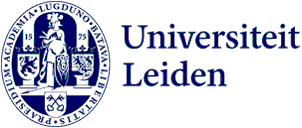
Flipping the classroom: ‘This course lays a foundation that students can build on for the rest of their studies’
The challenge: take three hundred students from vastly varying disciplines and teach them the basics of academic thinking in twelve lessons. Impossible? Professor Ben Arps and his team of tutors succeeded. It resulted in a large amount of positive student evaluations.
What kind of students are we talking about?
‘First-year and sometimes second-year students of Area Studies. That area of the faculty consists of fourteen disciplines, a mishmash of cultures and approaches. You can find Egyptologists there, but also people who study Chinese economy. Ultimately, though, we are always talking about how people function culturally in certain regions. So, there must exist a ‘language of area studies’. My goal is that students do not only get to know that academic language, but also learn to use it.’
How did you go about this?
‘Last year, I taught this course for the first time, as a lecture supplemented with academic articles. You end up in a lecture room with three hundred people who you have hardly any interaction with. That didn’t work, both for me and for them. I decided to create a textbook, or rather a multimedia module. I taught that one last semester. The material is broken down into varied, small portions. You can find everything online. If necessary, students can go through the material on their smartphone, wherever and whenever they want. They do have to thoroughly study everything before class, because interaction about the material is central. It was only last week that I found out that this is an acknowledged didactic approach: flipping the classroom. And indeed, it worked.’
Flipping the classroom
In a 'flipped classroom', students are expected to prepare the learning content independently. This can be done with a weblecture, a video or another online instruction. During the contact moments, the students work on assignments.
How do you deal with differences between all of these different disciplines?
‘Each of the twelve chapters includes one or two case studies. About the Chinese tradition to visit your ancestral village during New Year’s, for example. Afterwards they receive the theory, in this case about mobility and movement within an area. So they always know what they are talking about.
In addition, I received money for tutors, so that I could divide that group of three hundred men and women into smaller classes, each one consisting of one study programme. Here they could apply the general ‘language of area studies’ to their own discipline, for example by writing pieces.’
You also recorded video interviews with researchers?
‘I did! I wanted the students to learn about what academics actually are and do. I interviewed two colleagues per theme, in Leiden or somewhere else in the world, young and old, male and female, with all sorts of cultural backgrounds. I simply asked them what it is that they do when they are doing research or writing a book. The students really enjoyed these interviews: they mentioned this several times in the evaluations.’
Were the students also satisfied with the rest of the course?
‘You will always receive some criticism, but the responses were very positive. They liked, for example, how they could study the material in bite-sized chunks. This will remain a tough course, because it is not always evident to eighteen-year-olds that you can approach things from different angles. And that you should be aware of the fact that you do this. But they found this to be a fun and useful way to learn this. I was very satisfied with that, because that is exactly what I hoped for.’
Would you recommend this approach for other courses?
‘It is extremely fun to do, but you do have to invest a lot of time. Luckily, I received a subsidy for a student assistant and tutors, but otherwise I would have been exhausted now. It was a huge task. But I can reuse the module in the next few years. And most importantly: it worked. I think this course lays a foundation that students can build on for the rest of their studies.’
Ben Arps is a Professor of Indonesian and Javanese Language and Culture at the Leiden University Institute for Area Studies.
